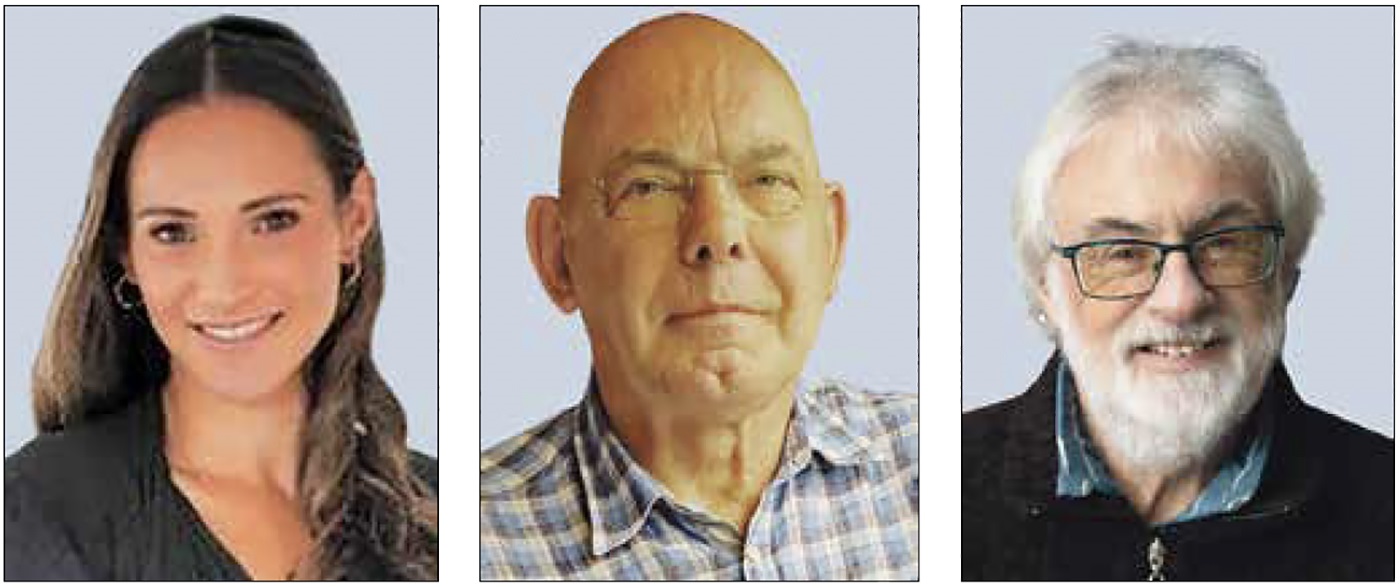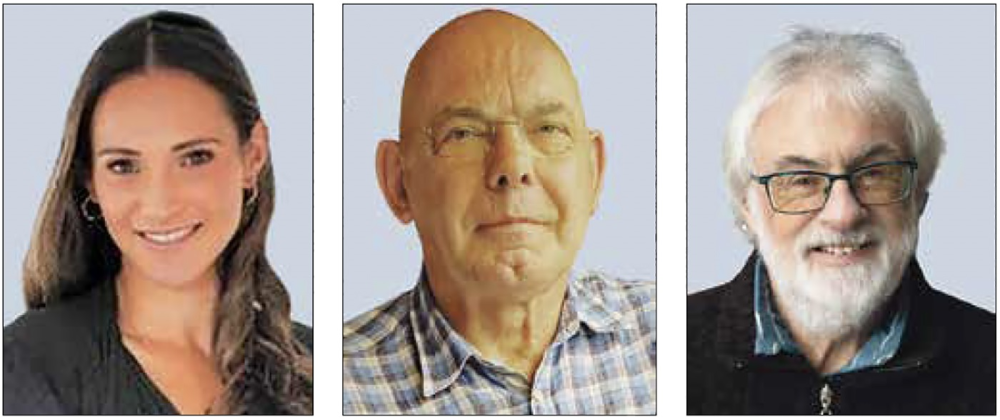
Support for a proposed upgrade of the Kāpiti Health Centre at Paraparaumu would not help Ōtaki, say local health advocates.
Kāpiti Coast District Council on May 28 adopted a Kāpiti Health Advisory Group (KHAG) recommendation that the council begin discussions with Te Whatu Ora (Health NZ) with the aim of upgrading the current health centre to become a polyclinic over time, providing a greater range of health services.

From left, Te Puna Oranga o Ōtaki kaiwhakahaere (general manager) Heniti Buick, Ōtaki Health & Wellbeing Advisory Group chair Adrian Gregory, and Ian Powell, author of the Kāpiti Health Advisory Group’s case for a polyclinic to Te Whatu Ora. Photos supplied
“While we acknowledge the intentions behind the KHAG and KCDC proposal for a polyclinic in Kāpiti, it’s important to note that such a facility would not address the access and affordability barriers faced by many Ōtaki residents,” says Te Puna Oranga o Ōtaki kaiwhakahaere (general manager) Heniti Buick. “For our community, the best solution is one that’s based in Ōtaki, developed by and for Ōtaki whānau.
“Local service delivery must be driven by local needs, and we’ve been clear in our communication that any future service developments for this area must involve genuine community consultation.”
Heniti says after-hours care is not just about a building, it’s about resourcing trusted, existing local services to deliver responsive and accessible care.
“If a regional solution like a polyclinic is prioritised without parallel investment in Ōtaki, it risks overlooking the very real health inequities that exist here. At Te Puna Oranga o Ōtaki, our focus remains on supporting locally led solutions that ensure primary care is delivered where it’s most needed.”
Her comments are supported by Adrian Gregory, chair of the Ōtaki Health and Wellbeing Group.
“KHAG’s ‘case’ to Te Whatu Ora doesn’t address the health needs of Ōtaki, nor is it clear whether the polyclinic will even service Ōtaki residents when they need it,” he says.
Adrian says sections of KHAG’s case referring to Ōtaki are inaccurate and misrepresent Ōtaki.
“Inaccurate because Ōtaki’s population is actually growing – not declining as suggested – and everyone in Ōtaki and Te Horo knows it. And its health outcomes are actually better than comparable populations, with death rates at a lower level than might be expected. We have health research from MidCentral to support this.”
He says no-one from Ōtaki was asked to contribute to the sections on Ōtaki – not the local health providers, iwi or the community’s health advocates.
“It’s about Ōtaki, but certainly not by Ōtaki. A lone paediatrician in Palmerston North is quoted, who is almost certainly not a resident of Ōtaki, and not the voice of Ōtaki.”
Adrian says he’s aware KHAG held a public meeting about the case it was to present.
“Sadly, its seems that they still have not engaged with Te Puna Oranga o Ōtaki, the Ōtaki Medical Centre, the providers at Ngā Hapu o Ōtaki or local health advocates.”
Ōtaki-based councillor Rob Kofoed said he’d been told that Otaki was outside the scope of the proposed polyclinic.
“It will be over my dead body if Ōtaki is not engaged with and looked after,” he told Ōtaki Today.
He said he would be making his views known at the next full council meeting.
KHAG said in a media statement the day after the council offered support for its case, that Kāpiti was the only community in New Zealand with more than 55,000 people and the nearest hospital was at least an hour’s drive away
“As the community with the highest proportion of over 65-year-olds and rapidly increasing numbers of young families moving to the area, this concern is becoming critical, it said.
“In 2018 more than 22,000 Kapiti people signed a petition seeking a hospital” said Ian Powell, KHAG’s Compelling Case author. “We recognise the workforce and financial pressures that will mean this is a long time coming but believe a polyclinic, providing 24/7 urgent care, increased outpatient services, diagnostic and treatment facilities and other health services, offers an efficient and cost effective option that will relieve many concerns for us.”
The KHAG statement said the proposed polyclinic would provide vital services that minimised the strain on nearby facilities and ensured that Kapiti residents, especially the elderly and growing families, were cared for in their own community.
OTHER STORIES


